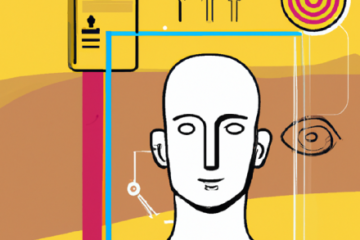7 key Themes of Customer Emotions
7 Key Themes of Customer Emotions
I enjoy my role as a customer. I take it quite seriously. Over the past 25 years, I have probably signed up for every loyalty program that brands have offered me. I have tried to be participative in many of their campaigns and feedback, wearing the customers’ hat. It has not been an easy pursuit, given the time available and in general the quality of marketing. So, appropriate I write this piece wearing my hat as a consumer.
There is a fascinating story that Jeff Bezos always keeps a chair empty in meetings, to remind fellow managers about the most important person in the room – the customer. The ability to empathise and take the customers’ perspective is one of the key traits for a customer experience leader.
There are 7 key themes in the emotions I encounter as a consumer specifically around customer experiences:

1. Feedforward, Not feedback
I provide inputs to make my future interactions easier, not just dwelling in the past. So, If you are not really serious about doing something about exactly what i am saying, please don’t engage me. Most consumers are keen to know what happened next after their feedback. Respondents to your survey conversations care about you and the brand relationship. You can build on it by acting on the inputs, even if you cannot act on everything (and consumers do understand).
2. Focus on the journey, not just the touch point
I am glad you engage me when I buy. So, happy to receive feedback on the shopping experience, car buying experience, service centre experience, home theatre buying experience and so on. But the experiences that matter to me is the experience of wearing that suit, driving that car, using that home theatre and soon. I can understand businesses are so focussed on their silos that they want to know my inputs on the retail shopping experience, website experience, or call center experience – but I am very rarely asked on my product experience. Try asking me next time on the product experience – you may be surprised by the quality of inputs I could give.
3. Take the conversation forward
Always tell me more. Let me decide whether I need to know more, or what to do with the information. Your push campaigns always come when I don’t want them. So, maybe every other consumer wants it pushed ahead of the weekend on Fridays. Not me. Any chance, you can tell me when I have just completed your surveys or other feedback inputs.
4. Self-service, self-service, self-service
I love the shopping experience but that’s where it ends. It is no fun dealing with your call center – so can you please plan your customer experiences entirely around self-service.
5. Let me pull or push when I need, please don’t push me alone when you need me
Consumers understand the need to have a conversation and know exactly when they can respond. Having a multi-channel approach allows customers to respond or start a conversation at their own time.
6. I don’t like to scream in public
I am frequently told that if I complain about on twitter, i would get the fastest response. Why should it be so? You have built a whole host of listening posts across your company including a frontline team, call center among others – yet the channel which gets the fastest response is twitter. You care when your consumer shouts in public, but not just as much when in the privacy of your call center?
7. Respect my intelligence
If you don’t have the time or the budget to create an effective feedback conversation, please don’t. This is not so much about the right platform as it is about the time spent at the desired touchpoint. Consumers have evolved over generations and are more responsive than ever, but at their own convenience.
Now, let’s switch sides and see it from the client’s side. Having interacted with over 100s of CEOs, CXOs and they have their heart in the right place. They dearly care for the consumer. But I don’t think they clearly have co-creation, active participation with consumers in their bag of tricks. Today’s technology tools ensure we can convert the active consumer interest to participate in contextual conversations across the journey. The real-time capability allows them to get a pulse of their employee and customer immediately, leaving no opportunity for social anguish. Businesses have started taking up the customer centricity agenda more seriously than ever before with dedicated resources, platforms and a culture-driven approach.
In our experience of over 126+ million conversations, the consumer, employee and every other stakeholder have a purpose to engage and co-create to deliver great experiences.
“We see our customers as invited guests to a party, and we are the hosts. It’s our job every day to make every important aspect of the customer experience a little bit better.” – Jeff Bezos

